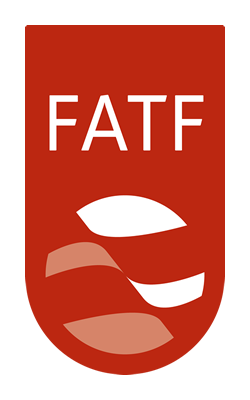February 28, 2020
 The Financial Action Task Force (FATF) has put Iran back on its blacklist, urging all countries to punish Iran’s banking system for ignoring efforts to block the movement of funds for terrorists through its banking system.
The Financial Action Task Force (FATF) has put Iran back on its blacklist, urging all countries to punish Iran’s banking system for ignoring efforts to block the movement of funds for terrorists through its banking system.
The grouping of 37 nations acted February 21 after having given Iran an ultimatum last fall to act by February or face the full wrath of the group, which sets international banking standards.
The organization put Iran in a special category in June 2016, saying it was giving Iran time to fulfill a pledge it had made to meet all the FATF banking standards. FATF then gave Iran five extensions of its deadline for compliance. Last October, when it said it was giving Iran its fifth extension, it said there would be no more after that.
There are now only two countries on FATF’s blacklist—Iran and North Korea. The fact that the blacklist is so small makes it much more likely that punitive measures against Iran will be fully enforced, as they already are against North Korea.
Britain, France and Germany have all said they would continue doing business with Iran as long as it was not put on the FATF blacklist. The FATF decision now appears to bring to a halt efforts by those countries to keep some trade ties with Iran.
The governor of the Central Bank of Iran, Abdol-Nasser Hemmati, said the FATF decision “is politically motivated and not a technical decision…. It will pose no obstacle to Iran’s foreign trade and stability in its currency exchange rates.” But the rial began to sink in value days before the FATF decision, with financial observers saying that was due to the expectation that Iran would be put back on the blacklist.
Decisions are taken in the Paris-based FATF by consensus, so there is no voting record. However, both Russia and China are members of FATF and they could have blocked a consensus if they chose to do so. The FATF decision indicates that those two major powers are unwilling to stand by Iran on the issue of terrorism financing.
In Tehran the day before FATF acted, government spokesman Ali Rabii said he felt certain Iran would not be put back on the blacklist. He told reporters, “Most countries—including Europe, China, Russia, Turkey, South Africa and other friends of Iran—supported us. Only the US, Saudi Arabia and Israel opposed Iran.” Obviously, that was completely wrong.
Iran’s biggest trade partner is China. Chinese banks have said it would be difficult for them to maintain financial links to Iran if it went back on the blacklist.
FATF has no enforcement mechanism and does not impose its standards on banks directly. It makes “recommendations” and urges governments to make those recommendations into rules their banks must obey. Most countries comply.
The Majlis has approved all of FATF’s standards. But the 12-man Council of Guardians vetoed two of the Majlis bills—one bringing Iran into compliance with the Terrorist Financing Convention and the other approving the Palermo Convention, which deals with the financing of international criminal cartels, including drug traffickers.
The Majlis asked the Expediency Council last year to override the Council of Guardians veto. But the Expediency Council has just kicked the can down the road at all of its meetings, refusing to either approve and override the Guardians. It appeared to think it could convince FATF to keep giving extensions as long as it did not outright reject the FATF standards. It was wrong.
The FATF announcement after its February meeting said, “Now, given Iran’s failure to enact the Palermo and Terrorist Financing Conventions in line with the FATF standards, the FATF fully lifts the suspension of counter-measures and calls on its members and urges all jurisdictions to apply effective-counter-measures.”
It provided a list of nine recommended counter-measures. Taken together, they amount to telling banks in a participating country to effectively cut off their dealings with all banks in Iran. As such, the blacklist is even harsher than US banking restrictions and would have the effect of banishing Iranian banking from doing business with the rest of the world.
Iran’s one hope is that some countries with big banks will not adopt the latest FATF blacklist recommendations or fail to enforce them. Of course, the United States will be watching Iran and will go to another government whenever it sees a bank cooperating with Iran.
A major tasking given the US intelligence community is to track Iran’s international banking operations to give US diplomats the information they need to go to other governments to try to spike Iran’s banking transactions.
While it is certain that Iran will find some foreign banks willing to cooperate with it albeit only after paying far more for such services than any other country it also is certain that Iran will find it much harder to conduct transactions and they will take more time, not to mention being much costlier.
The main problem for Iran is that FATF standards seek to cut off financing to such groups that Iran finances as the Yemeni Houthis, Lebanese Hezbollah, the Palestinian Islamic Jihad, Hamas in Gaza, the Popular Front for the Liberation of Palestine-General Command and assorted Iraqi militias. Hardliners in Iran have very publicly groused about the FATF standards for impugning the Iranian policy of supporting such groups, which Iran says are not terrorist organizations but “resistance” groups.
The Majlis attempted to get around the FATF standards by adding language to its legislation on terrorism-financing exempting groups “attempting to end foreign occupation, colonialism and racism.” But in its February statement, the FATF specifically quoted that exemption and said Iran would have to remove it to come into compliance with FATF standards.
While FATF has only two countries on its blacklist, it also has a grey list of 18 countries that have “deficiencies” in their banking standards. Most of them are small countries, including such island states as Mauritius and the Bahamas. But the list also includes, from the Middle East, Pakistan, Syria and Yemen.























